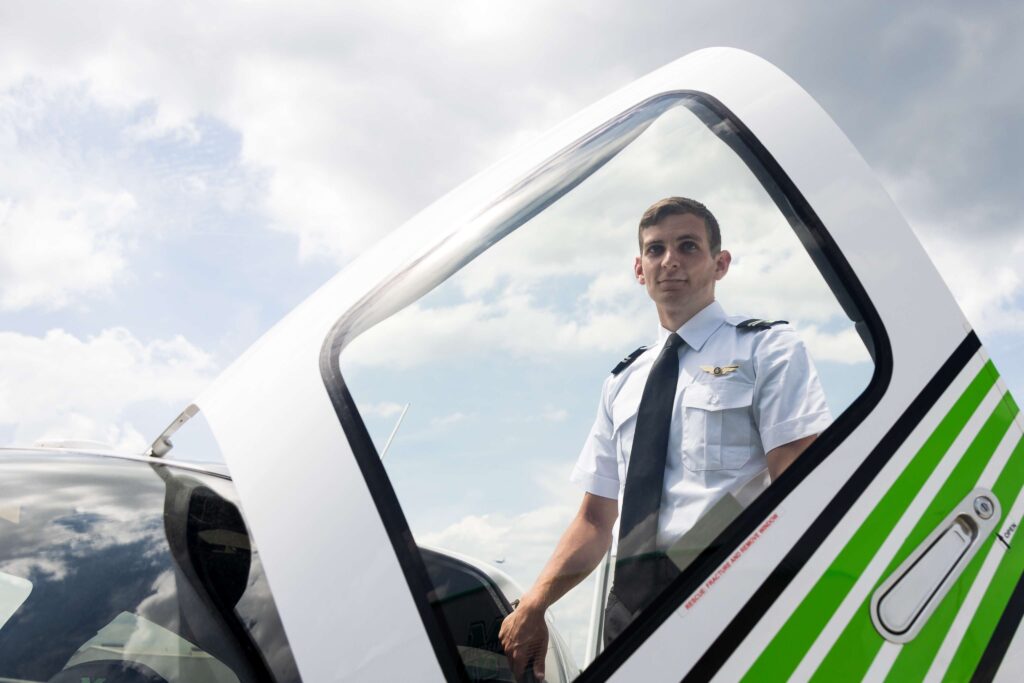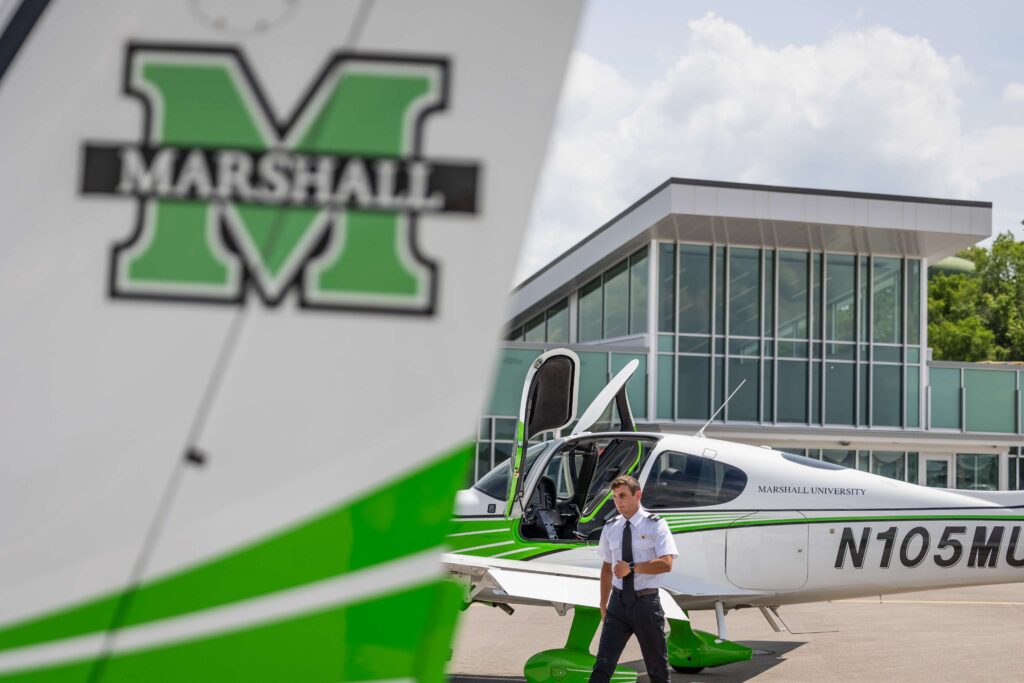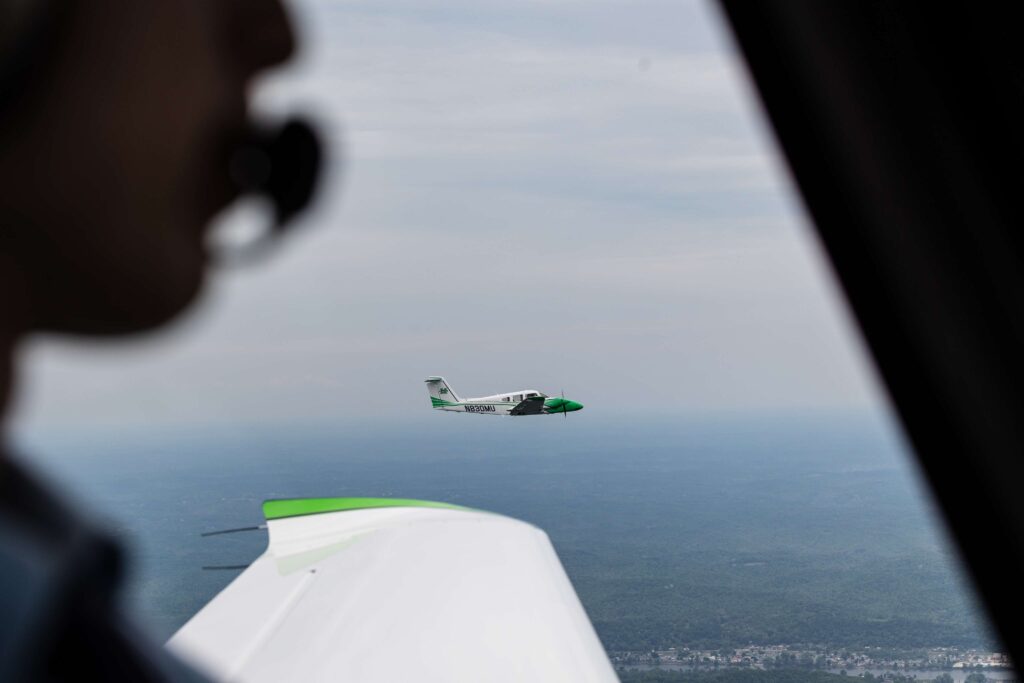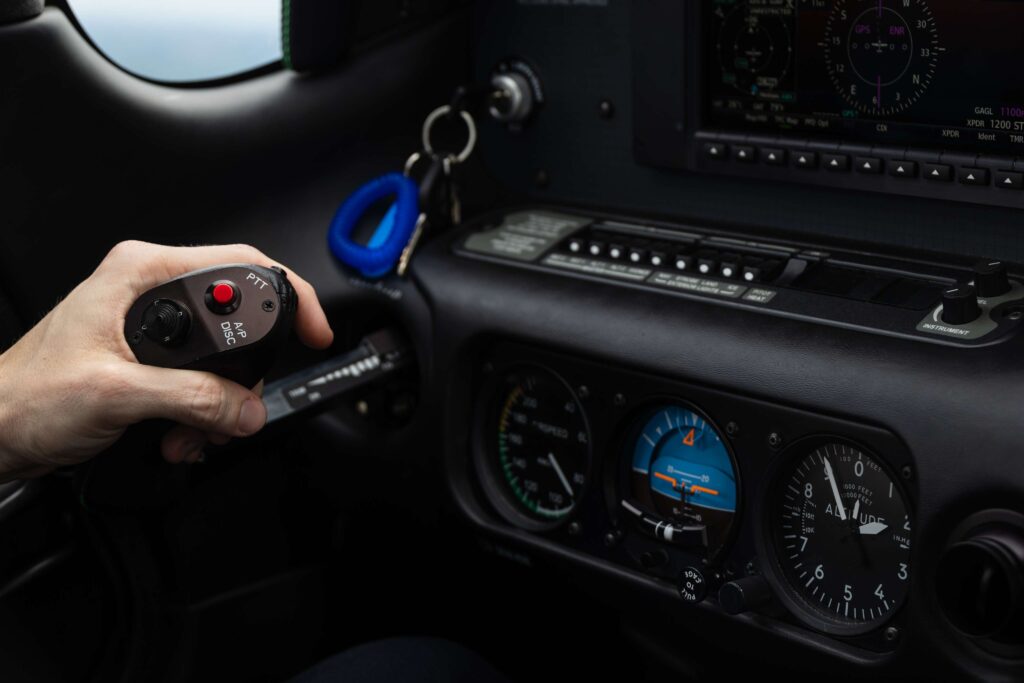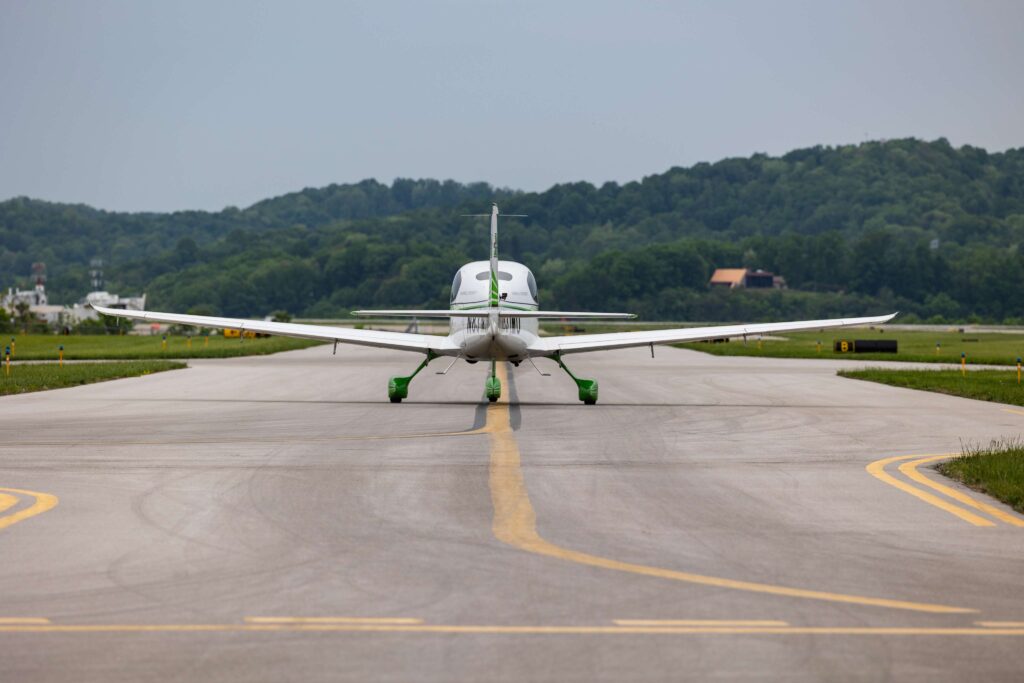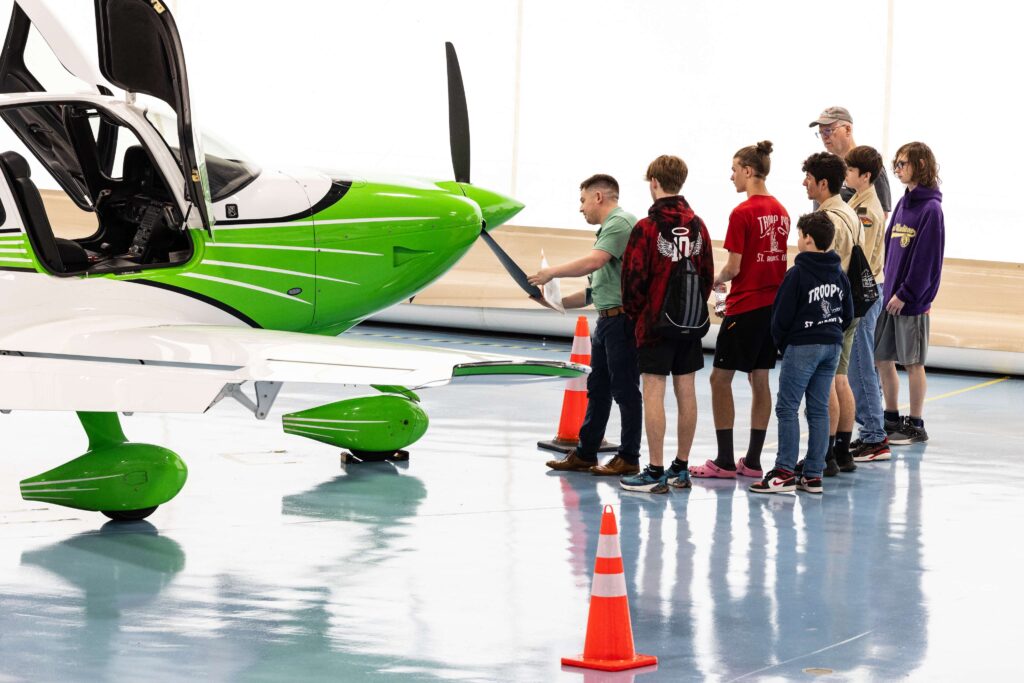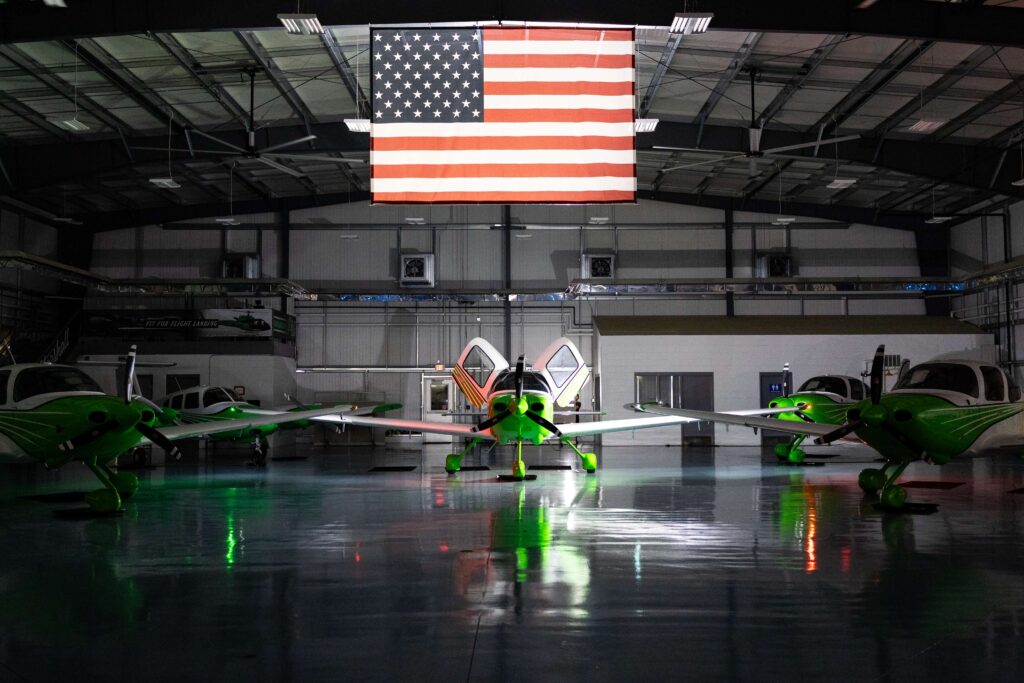Marshall University is one of Vertx’s closest collaborators, an invaluable Appalachian institution, and a crucial link in the national security pipeline. This spotlight explores recent developments that brought Marshall to the forefront of defense innovation.
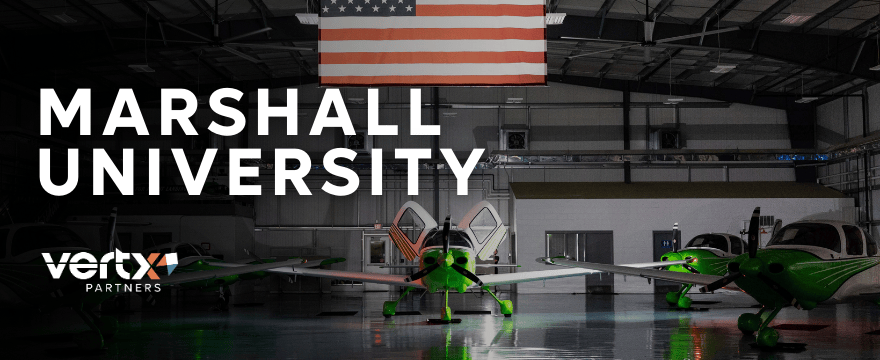
The 30,000-Foot View: The Importance of National Security to Marshall University & West Virginia
National security is more than an academic concern at Marshall University – it’s a driving force that shapes the institution’s mission, impacting the state of West Virginia and the country as a whole. Situated in southwestern West Virginia, a region with a long industrial history, Marshall is at the forefront of academic institutions preparing the next generation to tackle the complexities of national security.
Marshall’s commitment to national security is woven through its leadership, academic programs, and collaborative initiatives. Under the leadership of President Brad D. Smith, Marshall has expanded its influence in key areas such as cybersecurity, aviation, and technology transfer. This article highlights three standout programs: the Bill Noe Flight School, the Institute for Cyber Security, and the Technology Transfer Office.
These programs, deeply integrated into Marshall’s mission, reflect a collaborative culture that aligns with both state and national defense priorities. As we delve into each of these areas, it becomes clear how Marshall’s approach positions West Virginia as a leader in national security and economic development.
What’s more, is that this approach aligns perfectly with Vertx Partners’ mission to strengthen the Appalachian region economically and strategically through robust educational and research collaborations.
“Vertx Partners is focused on one market sector: national defense,” explains Vertx President and Retired Air Force Colonel Sean Frisbee. “However, by finding technologies that originally supported other sectors, we can apply those technologies to national defense and expand the defense industrial base, as well as make our supply chains more resilient.”
“Marshall has a broader mission, but it fits into Vertx’s,” adds Frisbee. “First of all, by educating students to be effective members of society that drive new technologies. Other pieces that fit into DoD [Department of Defense] interests are its cybersecurity curriculum and the Bill Noe Flight School.”
Marshall’s Role in National Security
Such efforts explain why Marshall University plays such a pivotal part in establishing the state as a national security leader. Executive Director of the West Virginia Department of Economic Development Office, Michael Graney, elaborates on how the initiatives at Marshall and spearheaded by companies like Vertx are making a difference:
“We’re collaborating, communicating, and cooperating; we used to compete, complain, and criticize. That’s why we’re getting things done,” says Graney. “We set out five years ago to intentionally diversify our economy, building on what we have, but adding new stuff. We’ve been successful with that.”
Graney’s insights highlight the collaborative spirit driving West Virginia’s advancements in national security and related fields. This collaborative effort is a testament not only to the state’s commitment to fostering a dynamic education/economic ecosystem but also to the leadership and vision at its heart.
Leadership & Vision: Brad D. Smith’s Presidential Tenure
At the helm of Marshall University is Brad D. Smith, the university’s 38th president, and former CEO of Intuit.
Smith’s leadership values innovation and partnership, making him a perfect fit for the university’s growing influence on national security. Sean Frisbee emphasizes Smith’s successful approach:
“Brad has a growth mindset, and he has an abundance mindset, so partnership is essential to him. Brad doesn’t operate in a silo,” says Frisbee. “He understands success is a result of a complex web of partnerships and relationships over time.”
Smith’s corporate experience and strategic vision position Marshall as a key player in advancing technologies that support national defense and the broader economy. His focus on expanding the university’s capabilities in fields like cybersecurity and aviation is not just about education. It also prepares the next generation for the challenges of digital warfare and beyond.
Smith now oversees the development and management of several of Marshall’s boldest projects. One broke ground months before he took office, a project putting Marshall on the map: the Bill Noe Flight School.
The Bill Noe Flight School: The Literal 30,000-Foot View
Marshall University made significant strides in West Virginia aviation education with the establishment of the Bill Noe Flight School at Yeager Airport in Charleston. Opened in August 2021, the flight school offers students a state-of-the-art learning environment with a 12,000 sq ft. academic building, a hangar, and an aircraft parking apron. The school offers undergraduate programs in commercial pilot (fixed-wing) and aviation maintenance. The school began accepting students in Fall 2021, meaning it hasn’t had a complete graduating class yet.
What sort of impact is expected from the Bill Noe Flight School? Tony Shroud, Vice President for Strategic Initiatives and Corporate Relations at Marshall University, explains:
“If you look across the country and at demand, there are 1.3 million jobs anticipated to open over the next several years in the aviation industry,” says Shroud. “284,000 of those are pilots, 402,000 maintenance mechanics, so Marshall is looking at areas that are in demand.”
How Aviation Impacts All Industries
The Bill Noe School’s vision for aviation careers extends far beyond the cockpit. “It might not be a pilot that you want to be,” says Nancy Ritter, Director and Chief Instructor at the school. “It might not be a mechanic that you want to be or a technician. But there are so many ways to be exposed to aviation and to enjoy a career in aviation.”
Ritter emphasizes that the aviation industry requires a diverse range of professionals to keep it running smoothly. This variety ranges from dispatchers coordinating aircraft movements worldwide to flight attendants ensuring passenger safety. “When people think of aviation, they automatically think of pilots and technicians, but the needs within the industry are extensive,” Ritter explains.
Marshall University is committed to widening this umbrella, partnering with organizations like Vertx Partners to integrate cutting-edge technology into their programs. Such programs could involve the growing fields of uncrewed aircraft systems and eVTOL (electric vertical takeoff and landing). This approach prepares students for traditional aviation roles while equipping them to support industries that rely on aviation’s evolving landscape.
The Bill Noe Flight School is pivotal for job development in West Virginia, attracting students from across the region. And the good news gets better, as Shroud goes on to highlight:
“Marshall can help be the [aviation] leader in the state. We’re going to start training helicopter pilots,” Shroud finishes. In May 2024, the school received an Airbus H125 turbine engine helicopter, further expanding its training capabilities and providing students with hands-on experience in rotary-wing aviation.
Further Developments at the Bill Noe Flight School
West Virginia holds special ties to aviation, several of which are surprising. Most residents learn about “Chuck” Yeager, the Rocket Boys, and Katherine Johnson. But did you know that even the very wood used by the Wright Brothers to construct their successful flying machines was purchased from the West Virginia Spruce Lumber Co.?
Mike Graney elaborates on this connection: “West Virginia has had companies working in the aerospace sector for over 50 years,” Graney says. “Pratt and Whitney (now MHI RJ), Collins Aerospace, SMR, Constellium; it’s a complex and interesting supply chain in this state.”
Amazingly, more aviation curriculum is in the works. “Vertx connected the Bill Noe Flight School with Dayton, Ohio’s Sinclair Community College, which is helping the school build an uncrewed aircraft curriculum,” reveals Sean Frisbee. “The vision is Bill Noe will have a whole spectrum of aircrew training, from fixed-wing manned systems, to rotary systems, to uncrewed drones, and eventually even crewed and uncrewed eVTOLs. It’s a ‘crawl-walk-run’ approach.”
“This is a workforce development opportunity for the DoD,” he adds. Marshall officials are mindful that the Air Force, Army, and Navy benefit from a suite of fresh aviation professionals.
Breaking into uncrewed aircraft curriculum (or, Advanced Air Mobility (AAM) training) further aligns Marshall with Vertx’s efforts, which in turn feeds into national security concerns as drones become an increasing presence in modern warfare.
Marshall contributes to the national security pipeline in other ways, one of which is through its Technology Transfer Office.
The Marshall Technology Transfer Office: Bridging Concept & Commercialization
Marshall University’s Technology Transfer Office (TTO) is a silent powerhouse for turning academic research into real-world products and services. By working closely with regional economic development partners and university researchers, the TTO helps create high-tech, high-paying jobs in West Virginia and beyond.
Frisbee underscores the importance of TTOs: “TTOs are all about helping university researchers turn their tech into a product sold on the commercial market; that market could be the DoD or the general public.”
One of Vertx Partners’ strengths is its ability to identify technologies that can be adapted for national defense. This ability is based on its team’s decades of collective experience. Frisbee elaborates: “What Vertx brings to universities and TTOs is helping sift through the massive number of opportunities out there and helping match them with the appropriate avenue. Vertx lends a particular defense acquisition acumen.”
The Marshall TTO is instrumental in this process, lending the expertise to navigate the complex path from research to commercialization. The Marshall TTO is yet another link in the chain that shores up national security.
Institute for Cyber Security: Building a Secure Future
In May 2024, Marshall University broke ground on a new 80,000 sq ft. Institute for Cyber Security building, marking a significant milestone in the university’s commitment to cybersecurity education and research. The state-of-the-art facility, scheduled to open by Fall 2026, will house advanced cybersecurity technology and support the university’s mission to foster a robust ecosystem of cybersecurity professionals and researchers.
Marshall’s existing Institute for Cyber Security (ICS) is recognized as a National Center of Academic Excellence for its B.S. in Cyber Forensics and Security. The ICS collaborates with corporate and government organizations to address growing challenges in cybersecurity. This new facility will further enhance Marshall’s ability to promote job growth in West Virginia. This, in turn, attracts students from outside the state, reinforcing the university’s role as a leader in this critical field.
“We’re developing a new Innovation District in Huntington, building a new Cybersecurity Institute, there’s a lot going on with Forensics…. We’re partnering with the Department of Defense now, building a Secure Operations Center in Huntington,” Tony Shroud elaborates, highlighting the institute’s expanding role in national security.
“We cannot train enough cybersecurity experts to deal with all the threats out there,” says Sean Frisbee. Cybersecurity attacks are crucial national security concerns because of the threats they pose to digital assets, including sensitive information, intellectual property, and critical infrastructure.
With the appointment of Dr. Henry Collier as the inaugural Executive Director of the Marshall Institute for Cyber Security, the new ICS is well on its way to completion, further rounding out Marshall’s array of national security-supporting institutions.
Conclusion: A Partnership for Progress
Marshall University’s programs in aviation, technology transfer, and cybersecurity are more than just academic offerings. Each is integral to the United States’ national security framework. Vertx Partners believes it’s vital to highlight and connect with academic institutions like Marshall to strengthen our nation’s security.
“If you look at DoD spending across all higher education institutions, you see that there are a handful of these institutions that receive the majority of the funding. However, there’s great research and development being done at hundreds of institutions across the country,” says Sean Frisbee. “For the country to remain science and technology leaders, we need to be able to tap into more than a few handfuls of institutions.”
“Vertx Partners is playing a critical role, particularly in the intersection of entrepreneurs in other industries applying for SBIRs/STTRs [Small Business Innovative Research/Small Business Technology Transfer], but also in convening activities that foster an intersection of industry, education, and economic development,” Michael Graney emphasizes. “We’ve got to train a workforce, so this convening is incredibly important to ensure that that happens.”
Through collaborating with Vertx Partners, Marshall contributes to the economic growth of Appalachia. This collaboration, in turn, plays a crucial role in fortifying national defense. Together, the two are building a brighter future where education, innovation, and security go hand in hand.
